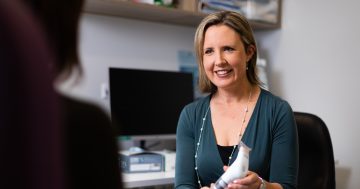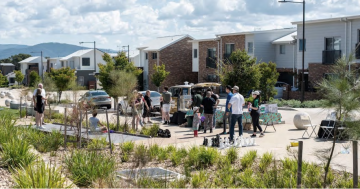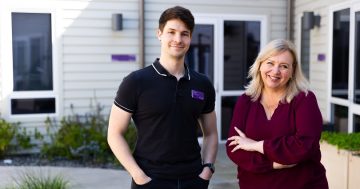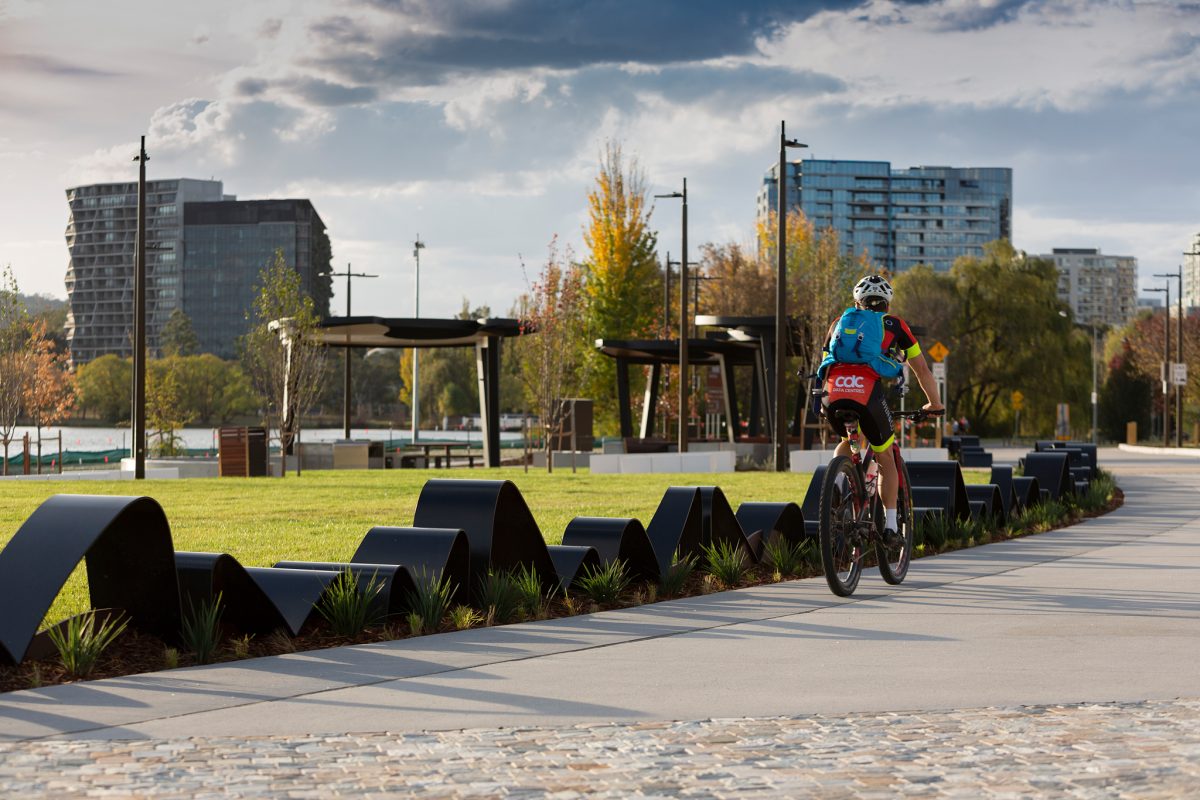
Access to green and recreational spaces is among the various environmental factors that impact our health and wellbeing. Photo: Adam McGrath.
If your local green space was more suitable, would you exercise more? Does your local grocer sell good quality fruit and vegetables or are you surrounded by fast food joints? And if you do have the perfect recreational and retail spaces around you, does the surrounding infrastructure allow you to reach them easily?
These questions and more are posed in a research survey that’s looking to pinpoint how environmental factors are impacting the health and wellbeing of Canberra’s various population groups.
Findings from the University of Canberra (UOC) Health Research Institute AgeWell survey will be used to inform best practices for government bodies in the hope of improving quality of life by bettering the neighbourhoods we live in.
The survey will investigate a broad range of environmental factors from tree canopy coverage to access to green spaces, proximity to recreation and the quality of nearby food retail, hospitality outlets and active travel infrastructure.
Each category contains different considerations for various population groups, according to UOC Health Research Institute senior research fellow Dr Suzanne Carroll.
“Having access to a nice green space for example provides the opportunity for physical activity, socialising or mindful relaxation, but the same park may support health and wellbeing amongst different groups in different ways,” she said.
“A playground might be good for young children and their parents while older adults might prioritise well-maintained footpaths to walk on without trip hazards. Young adults might want space to run around and play sports.
“Everyone can benefit from a destination to go to where they can be social, increase wellbeing and a sense of community, but we want to know what to prioritise and what the gaps are.”
Dr Carroll said for many people, COVID lifted the lid on deficiencies in their neighbourhoods.
“When people could no longer jump in their cars and drive wherever they needed to meet their needs, it really highlighted the importance of our local environments,” she said.
“People’s needs in terms of their surrounding environment are dependent on their age and family characteristics, such as having young children, but also the housing they’re in. For example in high density housing, there’s more need for public spaces because people don’t tend to have their own backyards.
“The pandemic absolutely brought that to light. We saw it in how the type of housing impacted things like infection rates, but also psychologically, people’s levels of comfort.”
In areas with all the necessary conveniences nearby, access can still be a problem.
“We once conducted an audit of environments around schools which involved walking around trying to map out the paths kids would take to school. We were surprised to discover how many areas simply didn’t have footpaths,” she said.
“If we want people getting out and about, walking to local conveniences or walking in spaces for the enjoyment, this is key. You might have all the nice conveniences nearby, but that won’t matter if the pathways to it are not maintained or well connected or worse – don’t exist.”
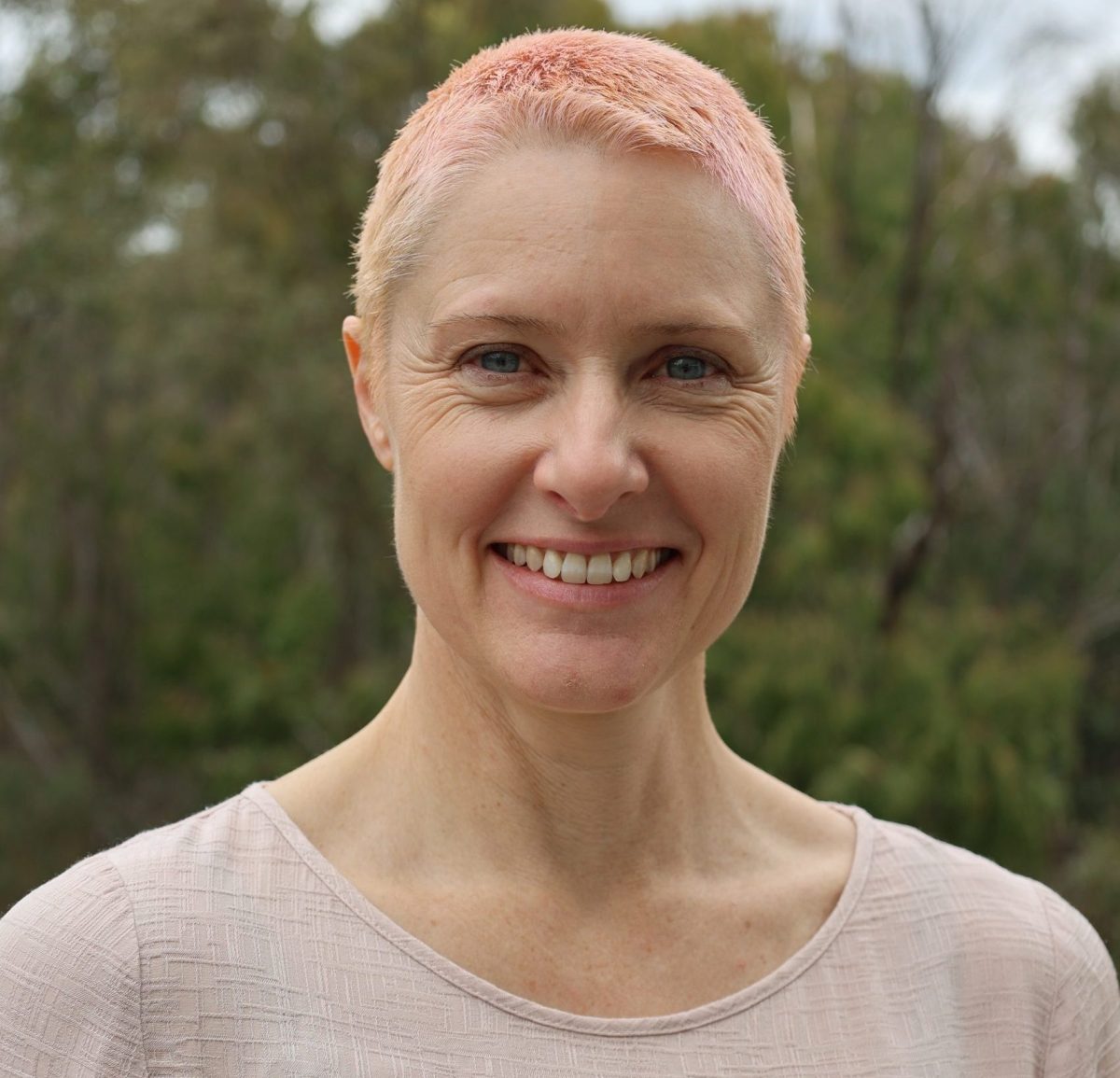
Dr Suzanne Carroll says the Health Research Institute AgeWell survey aims to identify what to prioritise to improve Canberra’s built environments and where the gaps exist. Photo: UOC.
Dr Carroll said there were plenty of opportunities for improvements, but gathering data from people with first-hand experiences of the environments was crucial if change makers were to reduce a “best guess” approach to infrastructure improvement.
This is where the AgeWell survey comes in.
“We hope a very broad crossover of the Canberra community will take the time to participate, and contribute to the information that will inform government bodies as to how best to approach improvements in their environments,” Dr Carroll said.
The UOC Health Research Institute will take data on “perceived environments” gathered from AgeWell and cross-reference this with “objective measures” of the built environment mined from a variety of sources including Google Maps, to get a complete picture of the availability of environmental factors.
“We want to understand how these factors matter to the various groups in Canberra. What’s important to the various age groups? What are the factors in less wealthy areas most impacting residents’ health? And so on,” Dr Carroll said.
“Once we’ve analysed the data, we’ll take our findings and present them to government agencies so they have evidence-based recommendations for key targets that will have the biggest impact.”
Learn more about the AgeWell project here or sign up to take the survey here before Friday 22 September.












